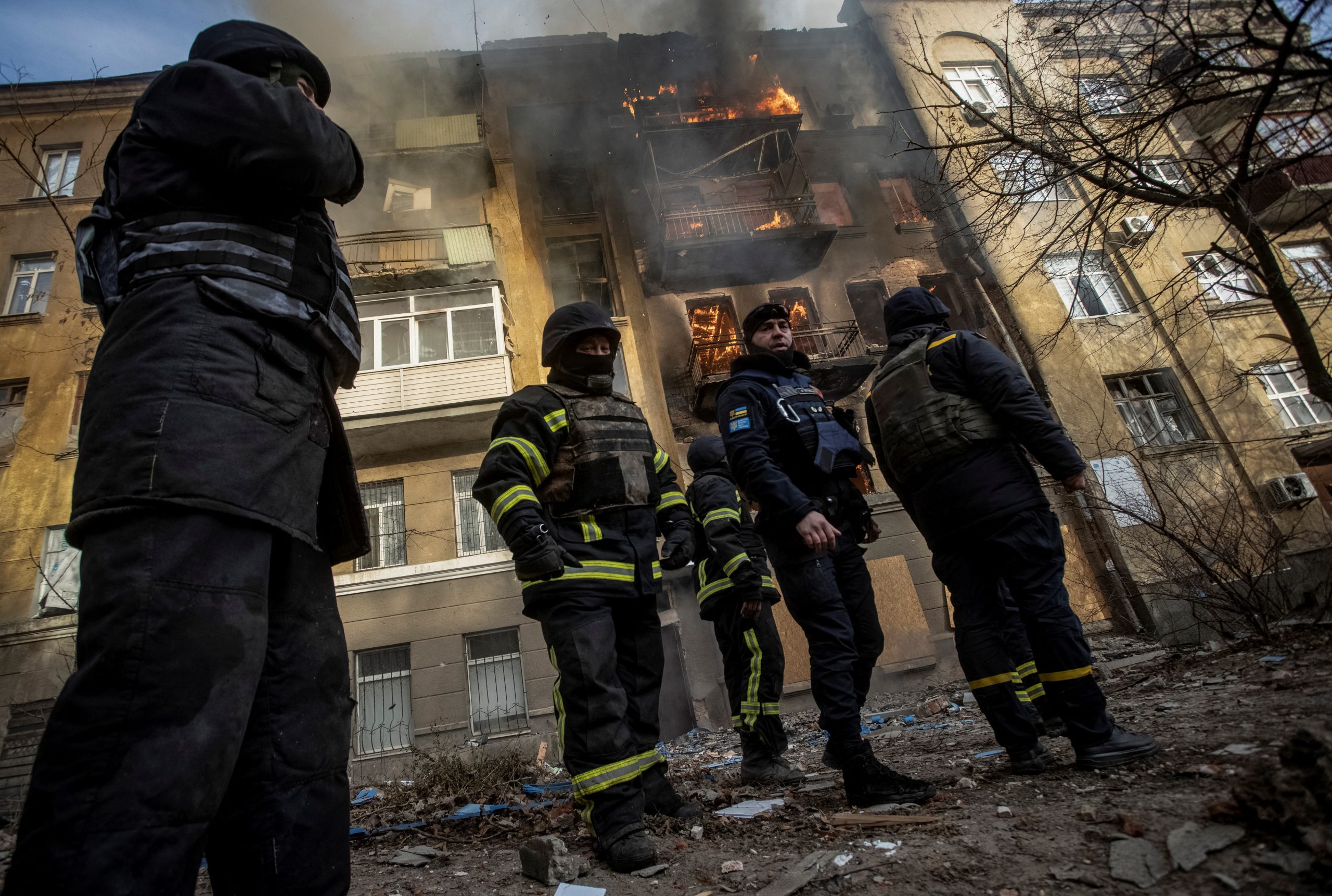
Chris Lange, FISM News
[elfsight_social_share_buttons id=”1″]
Russian President Vladimir Putin on Wednesday acknowledged that his “special military operation” in Ukraine is taking longer than expected but touted the success of his forces in seizing new territory.
“Of course, it could be a lengthy process,” Putin said during a televised meeting with his Human Rights Council in Moscow, The Associated Press reported. The more than 9-month-old war has killed and wounded tens of thousands and displaced millions of Ukrainians from their homes.
The Russian leader appeared to be undeterred by Ukraine’s recent string of battlefield victories, including its recapture of Kherson last month and this week’s unprecedented attacks on two military air bases deep inside of Russia, though Kyiv has not claimed responsibility for the strikes. Instead, he vowed to “consistently fight for our interests” and to “protect [Russia] using all means available.” Putin also doubled down on his claim that he had no alternative but to send troops into Ukraine because the West had, for years, “only spit in the face” of Russia in response to its security demands.
The Kremlin leader also rejected accusations from the West that his references to nuclear weapons amounted to “saber-rattling,” asserting that the thinly veiled threats were “not a factor provoking an escalation of conflicts, but a factor of deterrence.”
“We haven’t gone mad. We are fully aware of what nuclear weapons are,” Putin said. “We have them, and they are more advanced and state-of-the-art than what any other nuclear power has.”
At one point during the meeting, Putin was asked by a Council member if he would be willing to make a no-first-use pledge regarding nuclear weapons. Without answering directly, Putin essentially suggested that the point is moot, since Russia would not be able to use nukes at all if it came under attack after having entered into such an agreement.
“If it doesn’t use it first under any circumstances, it means that it won’t be the second to use it either, because the possibility of using it in case of a nuclear strike on our territory will be sharply limited,” he said.
The Russian leader made no mention of this week’s drone strikes on Russia’s Ryazan and Engels military air bases, which prompted a security alert throughout much of the country this week. Moscow has accused Kyiv of using scouts to launch the strikes inside of Russia. However, Ukraine has neither confirmed nor denied responsibility the attacks. Russia has since been working to strengthen its defensive positions along its border with Ukraine, erecting anti-tank barriers and organizing “self-defense units.”
Russia undeterred in goal of ‘liberating’ annexed regions in Ukraine
The Kremlin said on Thursday that it has not wavered from its intention to “liberate” annexed regions in eastern and southern Ukraine but said that there were no plans to incorporate any additional territories, Reuters reported.
Russia sought to absorb the Donetsk, Luhansk, Zaporizhzhia, and Kherson territories in September through so-called “referendums” in which locals were forced to cast approving votes, often at gunpoint.
Asked by a reporter if there would be additional annexations in the future, Kremlin spokesman Dmitry Peskov responded: “There is no question of that. At least, there have been no statements in this regard.” Peskov said that “a lot of work” lies ahead, in terms of “liberating” the territories. “I mean part of the Donetsk Republic, as well as what became part of the Russian Federation, and then was re-occupied by Ukrainian troops,” he clarified.
Russia resumes use of Iranian-made drones following supply snags
Ukraine’s presidential office said on Thursday that Kremlin forces struck nine regions in the east and south overnight and had resumed its use of Iranian-made Shahed drones following unspecified supply problems. Moscow began using the drones in August to target Ukrainian power and infrastructure, causing mass blackouts in various regions, including the capital city of Kyiv, many of which have not been resolved.
Meanwhile, President Zelenskyy said in his Wednesday night video address that four Kherson police had been killed as they attempted to locate and destroy landmines left behind by retreating Russian forces.
Orthodox priest accused of spying for Russia sentenced to 12 years
Ukraine on Thursday sentenced an Orthodox priest from eastern Ukraine to 12 years in prison for allegedly passing military information to the Kremlin. The sentence comes amid a crackdown on the Russian-backed wing of the Ukrainian Orthodox Church that has included raids on monasteries.
Ukrainian President Zelenskyy has asked Ukrainian lawmakers to vote today on his proposal to ban the Ukrainian Orthodox Church over its ties with Russia.
“It is necessary to create such conditions in which any figures dependent on the aggressor country will not be able to manipulate Ukrainians and weaken Ukraine from within,” Zelenskyy said last week. “We will never allow anyone to build an empire inside the Ukrainian soul.”
